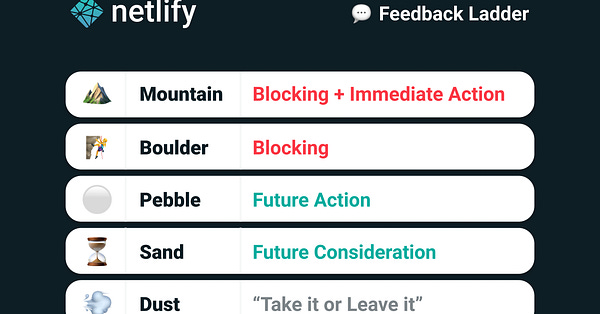The Moon is Implicit - 2020/03/08
Happy Sunday, lovely readers (and readers are leaders!). I’m Andrew Ek, and here are some things that were/are of interest to me and may be of interest to you. The bolded headers are also links.
This Thursday (2020/03/12) I’ll be speaking at the Omaha Ruby meetup, on the topic of “Evolving a High Throughput Data Pipeline”. I’ll share some patterns I’ve found useful in building software that can handle and process hundreds of thousands (if not millions) of data events per day — imagine, for example, a bank of sensors that report readings once per second, and how we might go from receiving a reading to displaying some graphical output without bogging our system down.
It should be a fun time. I’m told there will be pizza. There’ll also be some discussion of Radical Candor. And pizza.
"Survivor's Guilt in the Mountains"
This essay, by Nick Paumgarten, explores a bit of way the Bozeman, Montana climbing community experiences and interacts with grief, as so many of its members have passed away in climbing accidents.
Anker said, “A fundamental difference, and why people are critical of this, is that we do this by our own volition, whereas if you’re a firefighter, a soldier, or a police person, you’re a hero, you did that on behalf of other people in society, or because you had to.”
The joke (but not really a joke) about old and bold climbers makes an appearance early and frames the entire essay.
Was Jeanne Calment the Oldest Person Who Ever Lived—or a Fraud?
This investigative essay, by Lauren Collins, looks into the life of Jeanne Calment, who lived to be 122 years old. The author specifically looks into claims that Calment was a fraud (one conspiracy theory has her as the daughter of the actual Jeanne Calment), and ultimately comes to a conclusion.
Code Name: Lise: The True Story of the Woman Who Became WWII's Most Highly Decorated Spy
I read this book, which is the account of Odette Samson, who is the most highly decorated woman spy in WW II and one of the most highly decorated spies ever, on my way back from LoneStar Elixir 2020. It’s a quick moving and harrowing tale, and from what I understand almost every single detail, down even to the line of dialogue, is backed by primary sources in some fashion. The book does occasionally get breathless, and I occasionally had to look at the dramatis personae section to remind myself if a character was a new character or an old character with a code name.
Feedback Ladders: How We Encode Code Reviews at Netlify


Netfliy recently published an article about how they give feedback on code reviews (code reviews and code review feedback have been a topic of my own study lately), wherein the feedback-giver categorizes feedback based on importance.
When I was teaching writing, I found that after a certain amount of feedback left, students would have a difficult time parsing out which items were worth taking action on right now (v. ignoring), and even which items they should take action on first.
The way I resolved this was to, somewhat paradoxically, leave less feedback for students and instead focus on the 2 or 3 most important items (titrated up or down based on the student and their skill level).
Software developers don’t quite have that same luxury, primarily because the business is far more concerned with a feature working (and generating revenue / cutting costs / solving problems) than it is with any individual developer’s learning or growth.
Finally, these animal friends are really lovely:





That’s all for this time, wonderful humans. Be well.
-ae



